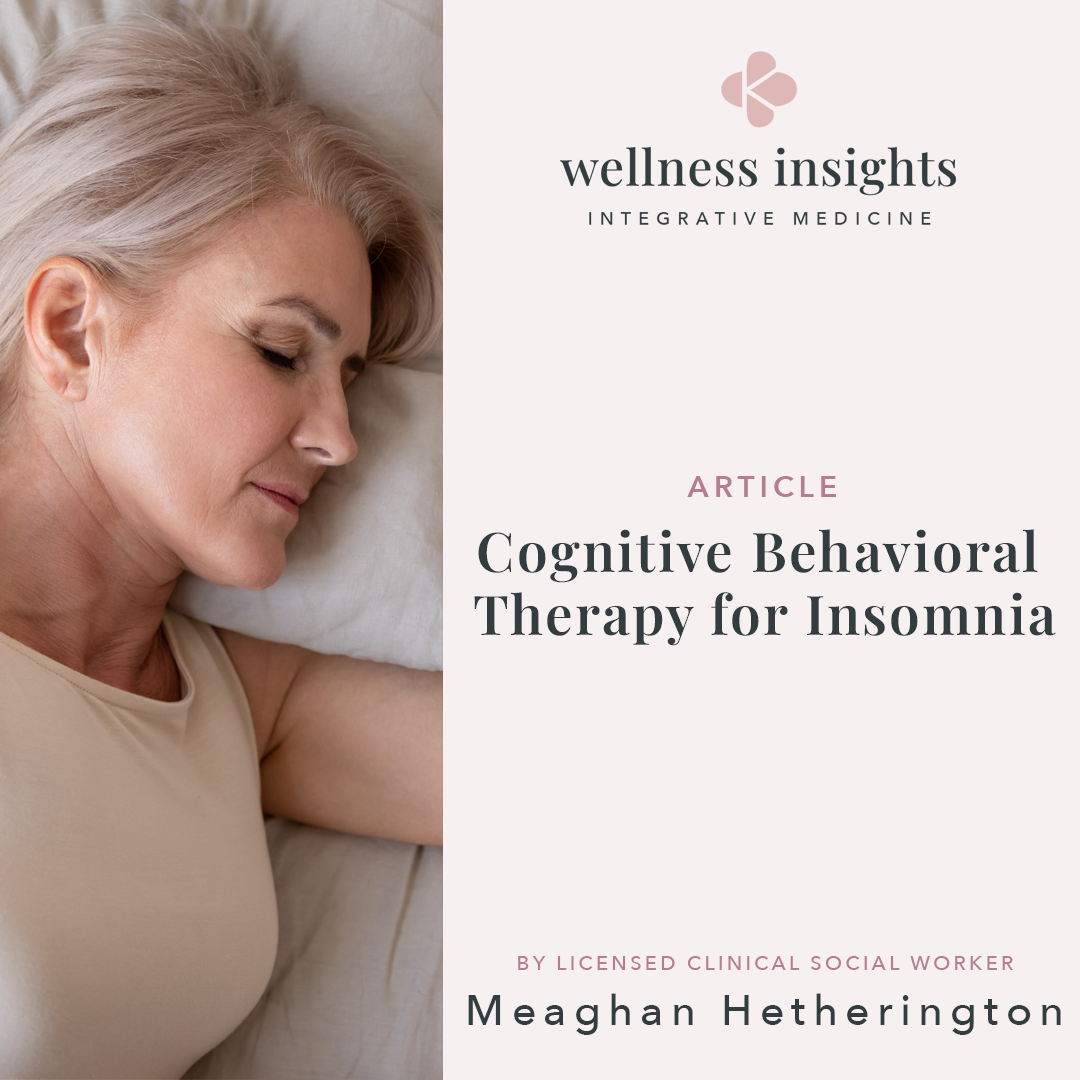What Is CBT-I? The Science-Backed Therapy That Treats Insomnia Naturally
Experiencing a poor night of sleep is a painful experience many of us are familiar with, whether due to stress, travel, or hormonal changes.
But for many people, sleep issues are more than just a fleeting problem. Roughly one in eight Americans have been diagnosed with chronic insomnia, resulting in harmful consequences for their physical and mental health.
Fortunately, there is a well-researched, effective and drug-free treatment option available: cognitive behavioral therapy for insomnia (CBT-I).
When to Seek Treatment
Insomnia is characterized by difficulty falling asleep, difficulty maintaining sleep or early awakenings. Insomnia is generally considered chronic when sleep loss occurs three or more nights per week for at least a month, and results in daytime impairments. If you feel like your sleep problems have taken on a life of their own and are no longer tied to a specific trigger, it is a good time to seek help.
Women are especially vulnerable to sleep loss due to particular life transitions, such as during pregnancy and the perinatal period, and during perimenopause. CBT-I is a medication-free, proven approach, so it is a safe option for people across their lifespan, including for women during both of these specific stages of life. CBT-I also has beneficial ripple effects that can significantly ameliorate co-occurring medical and behavioral symptoms. Research has shown that treating insomnia through CBT-I improves depression and anxiety, reduces risk of postpartum depression, and eases mood-related symptoms associated with perimenopause.
What is CBT-I?
CBT-I therapy goes deeper than sleep hygiene strategies, addressing the underlying behaviors, anxieties, and negative beliefs that can interfere with our sleep. CBT-I treatment consists of several components aimed at providing you with the tools necessary to improve your sleep.
Some aspects of treatment include education, the creation of individualized sleep-wake schedules, addressing the behaviors that interfere with sleep, as well as learning relaxation and stress management techniques. Treatment is concise, typically lasting between four and twelve weeks.
Why CBT-I
CBT-I has been empirically validated to be as effective as pharmacological treatment in the near term, has no side effects, and is more effective than medication in the long-term following treatment with fewer relapses. Rather than masking insomnia symptoms with sleep medication, CBT-I promotes the body’s natural sleep mechanisms.
At Wellness Insights, we go beyond treating symptoms to address the root causes of the issues that interfere with overall health. Quality sleep is fundamental to our physical and emotional well-being, and if you are suffering from insomnia, effective treatment can help you to restore the sleep you need.
This blog and website do not provide medical advice. It is intended for general informational purposes only and does not address individual circumstances. It is not a substitute for professional medical advice, diagnosis or treatment and should not be relied on to make decisions about your health. Always check with your own healthcare provider before taking a new supplement and before making any significant diet, lifestyle, exercise or other changes. Never ignore professional medical advice in seeking treatment because of something you have read on this site. If you think you may have a medical emergency, immediately call your doctor or dial 911.

